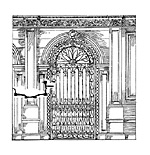
The Secularizing of Catholic Universities
FROM ORTHODOXY TO HERESY
Forty years ago the major Catholic universities in the U.S. decided that the Catholic Church needed to reform her teachings, especially that of sexual morality, to conform to the times, and that they should lead that reform. In 1967, at Land O’Lakes, Wisconsin, they declared their independence from the Church, exchanged the faith of their founders for an evolutionary heresy, proclaimed themselves to be an alternate magisterium, and transferred control from their founding religious orders to secular boards of trustees. Not coincidentally, by these actions they qualified themselves for lucrative financial grants from foundations controlled by leaders of the Culture of Death.
For forty years the true nature and intent of this revolution has been disguised. As a result, generations of Catholic students and graduates have been and are being ill formed and misled in their faith, or have lost it altogether.
It is time for the story to be told.
You May Also Enjoy
Through the joys and perils of liberal learning we must ever recollect that only faith seeking understanding properly disposes the intellect toward conformity to Christ.
It's time to get over the embarrassment of seeking out students, faculty, and administrators from a school's supporting religious tradition.
As the earth was created before man, Pope Francis advises, man is obliged to treat the earth in a manner that is “caring, protecting, overseeing, and preserving.”

